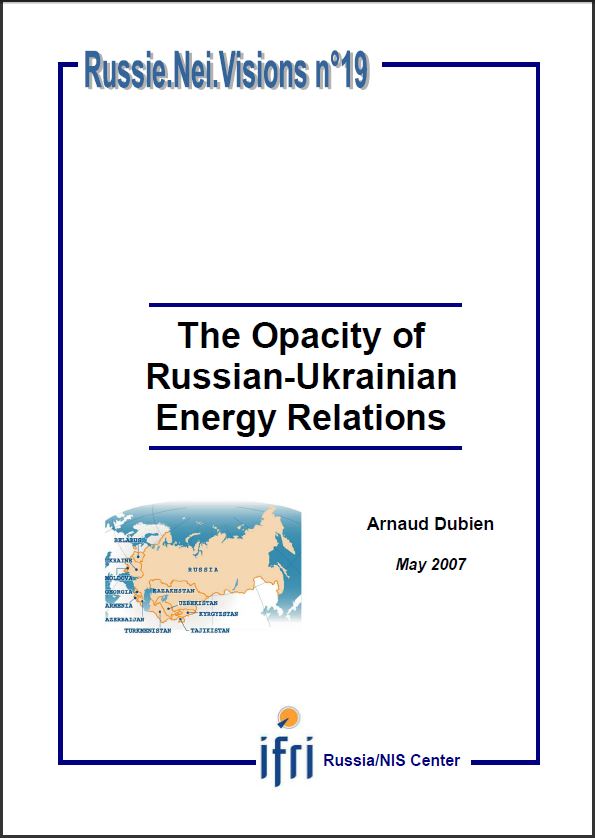The Opacity of Russian-Ukrainian Energy Relations

Energy issues lie at the heart of Ukraine's economic, political and strategic challenges. A year after the 'orange revolution', the 'gas war' served to highlight the country's vulnerable position, being 80% dependent on imports of gas and having the world's most energy-hungry economy. The 2005 crisis also highlighted the extreme opacity of the country's bilateral relations with Russia, which are governed as much by the interests surrounding Gazprom's relations as by those of the state. Yanukovich's return to power in the summer of 2006 coincided with a relative appeasement of relations with Moscow and a new division of spheres of influence in the Ukrainian energy sector.
Download the full analysis
This page contains only a summary of our work. If you would like to have access to all the information from our research on the subject, you can download the full version in PDF format.
The Opacity of Russian-Ukrainian Energy Relations
Related centers and programs
Discover our other research centers and programsFind out more
Discover all our analysesThe Caspian Sea as an Emerging Energy Hub : Potentials and Limitations
This report analyzes the prospects of the Caspian Sea region — and its key actors except for Russia and Iran — becoming an important energy hub serving the needs of the European Union (EU).
The European Union's Strategic Test in Georgia
The political crisis brewing in Georgia is of an existential nature for the country. What is at stake is Georgia's future as a democratic and sovereign European nation (EU).
Commanders of Putin's Long War: Purged, Reshuffled and Disgruntled
The trend of reshuffling the Russian top military command in the course of a fast-evolving and far from successful war has progressed unevenly both across the Armed Forces’ structures and in time. The rationale for and timing of the abrupt cadre decisions made by Commander-in-Chief Putin often defy logical explanation, and the rare official clarifications are no more informative than the usual information blackout.
Russian Military Manpower After Two and a Half Years of War in Ukraine
In addition to a military victory in Ukraine, the Russian leadership is planning to build up sizable troop formations for a possible conflict with NATO in the Baltic region and the Kola Peninsula. In particular, current plans aim for the military manpower to grow by about 350,000, reaching a total of 1.5 million soldiers and commanders. In the context of the current conflict in Ukraine, this cannot be accomplished without a new wave of mass mobilization.









